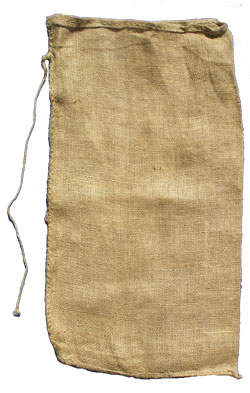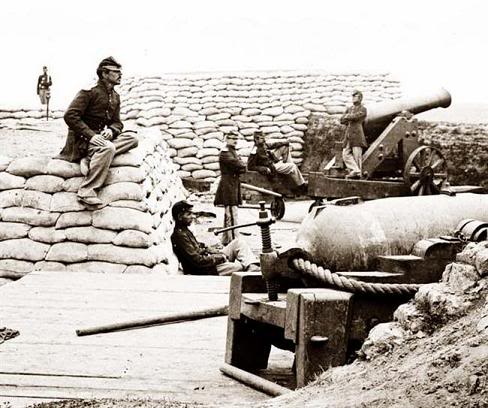In an effort to track down the history of earthbag building, I’ve been reading up on the history of burlap bags – the forerunner to polypropylene bags. This post is based on information at NYP Corporation, a wholesaler of burlap bags. (See “Jute to Burlap.”)
For centuries, the people of India used jute, the plant which burlap is made from, to make rope, paper and handwoven fabrics.
The first mill to mass produce burlap and other jute products was established near Calcutta, India in 1855. This region is still the main supplier of jute products today. The mechanical process of spinning jute fibers was first worked out in Dundee, Scotland. Dundee produced the first power-driven machines for the mill in Calcutta in 1859.

According to the article on NYP Corporation’s website, “By 1869, five mills were operating with 950 looms. Growth was rapid and, by 1910, 38 companies operating 30,685 looms exported more than a billion yards of cloth and over 450 million bags.”
Photo source: www.militarysupplyhouse.com

Update from Doug at http://www.dailykos.com/story/2009/7/18/754890/-NFTTFill-The-Sandbags!-Edition
Doug has kindly informed us that sandbags can be traced back almost 250 years to the Napoleonic Wars, during which time French troops were issued sandbags for use in the field.
The excellent photo above shows how sandbags were used during the Civil War.

Thanks Doug! I’ll update the post immediately.
http://www.dailykos.com/story/2009/7/18/754890/-NFTTFill-The-Sandbags!-Edition
seems to disagree with your assessment.
I don’t think so, but many things are possible….I have been studying the photographs for the past 45+ years and have not seen ANY in all the images…..what WAS used were WICKER GABIONS…..aka rollable “baskets” filled with strips / slats of wood [by the appearance]….for an EXCELLENT example, see:
Photographic History of the Civil War, F.T. Miller, 10 Volumes, 1911 [often referred to simply as “Millers”]
SPECIFICALLY Volume 5 [V], page 207, 209, and 211[EXTENSIVELY used at Ft. Sumter]….regards dave
Gabions were filled with hard-packed dirt.